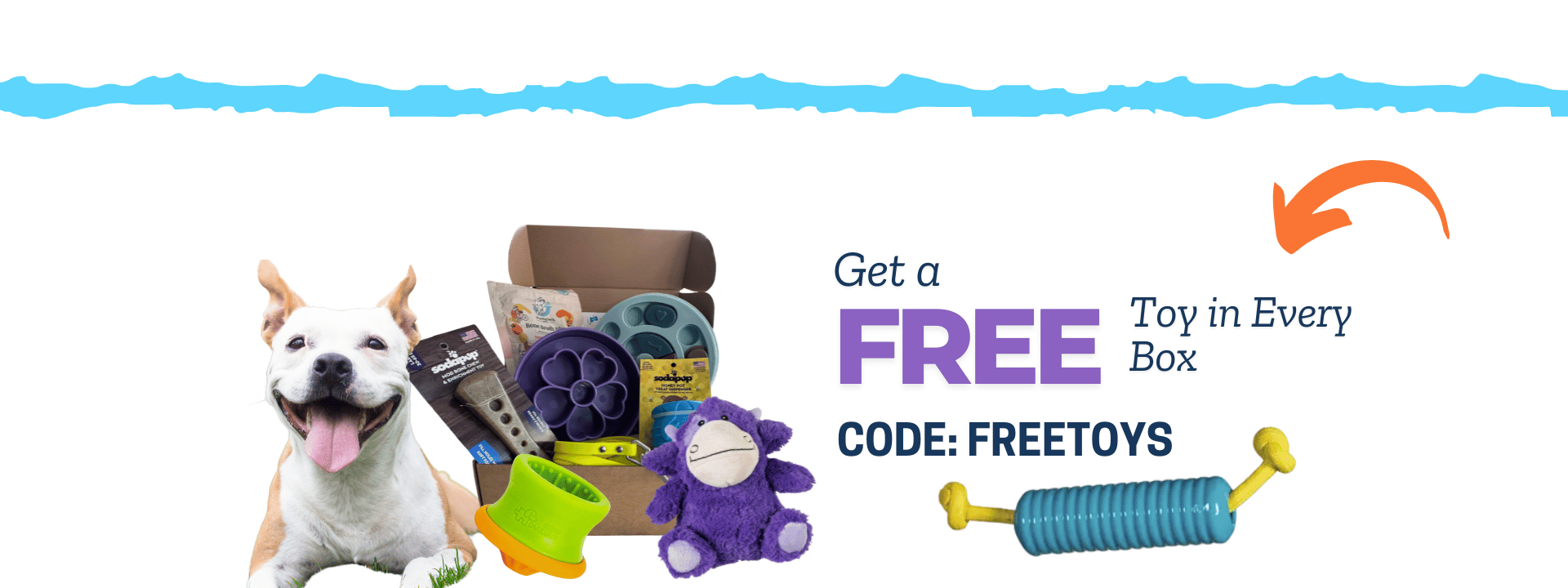Have you ever watched your dog figure out how to open a treat puzzle and wondered, "What's going on in that furry head?" You're not alone! As dog parents, we're constantly amazed by our canine companions' intelligence, emotional awareness, and sometimes puzzling behaviors. For an overview of what enrichment really means, check out our post What is Enrichment? Understanding Dog Brain Games and More.
Your Dog's Amazing Brain: Smaller Than Yours, But Oh So Mighty!
While your dog's brain is only about the size of a tangerine (roughly 1/10 the size of a human brain), it packs some serious processing power where it counts!
Dr. Gregory Berns, neuroscientist and author of How Dogs Love Us, used MRI scanning to study dogs' brain activity and discovered that the caudate nucleus (a reward center) lights up in much the same way as it does in humans during positive experiences (Berns et al., 2017). And here's another fascinating fact: the region of their brain devoted to processing scents is 40 times larger than ours—a key reason why your pup can sniff out a treat before you even realize it's missing.
Dogs: The Cognitive Athletes We Underestimate
Remember the time your dog seemed to know you were coming home before you arrived? Or how they understand “W-A-L-K” despite the playful misspelling? Science tells us these aren’t just coincidences. Research from the Family Dog Project at Eötvös Loránd University in Hungary shows that dogs can:
-
Recognize over 200 words (with some exceptional dogs knowing more than 1,000)
-
Interpret human emotions from facial expressions and voice tones
-
Follow pointing gestures with greater accuracy than even some primates
-
Solve complex problems through observation and trial-and-error
For more on harnessing these impressive abilities, read Understanding Canine Socialization: More Than Just Making Friends.
The "Use It or Lose It" Brain: Why Enrichment Matters
Just like us, dogs' brains thrive on regular stimulation. A pivotal study published in the Journal of Veterinary Behavior found that dogs engaging regularly in mental challenges—through puzzle toys and training games—maintained better cognitive function as they aged (Milgram et al., 2005).
When your dog participates in an enrichment activity:
-
Problem-solving circuits activate, creating new neural pathways
-
Dopamine is released upon success, reinforcing positive behavior
-
Stress hormones decrease, leading to a calmer, more balanced pup
-
Cognitive flexibility increases, helping them adapt to new situations
For practical tips to implement daily enrichment, explore our guide 4 Simple Enrichment Activities to Teach Your Dog to Calm.
Different Dogs, Different Thinkers
Not all dogs are alike—and breed differences can influence how they learn and process information:
-
Herding breeds (like Border Collies) are natural problem-solvers who excel at following complex cues.
-
Scent hounds (such as Beagles) have an unparalleled ability for nose work, making scent games a perfect match.
-
Guardian breeds (like Rottweilers) often exhibit strong situational awareness and memory skills.
To dive deeper into breed-specific enrichment strategies, you might enjoy Dog Enrichment Ideas and Activities to Keep Your Dog Busy.
The Emotional Genius of Dogs
Research continually reveals just how emotionally complex our canine companions are. A 2018 study in Learning & Behavior highlighted that dogs will rush to help family members in distress—a prime example of prosocial behavior (Sanford et al., 2018).
According to cognitive ethologist Dr. Marc Bekoff, dogs experience a wide spectrum of emotions, from joy and love to anxiety and even grief. Because their emotional intelligence goes hand in hand with mental stimulation, ensuring they have opportunities to engage in enrichment activities is crucial for emotional well-being.
For strategies on fostering emotional balance, check out Mindfulness with Dogs: Finding Calm Together and A Guide to Canine Emotional Regulation With The Flirt Pole.
Putting Science Into Action: Everyday Enrichment
Effective enrichment doesn’t require a full afternoon of activity—short sessions throughout the day can make a huge difference. Here are some science-backed ideas:
-
Food puzzles: Activate problem-solving while tapping into natural foraging instincts.
-
Scent games: Hide-and-seek with treats leverages your dog’s superior sense of smell.
-
Toy rotation: Regularly switching out toys keeps them novel and stimulating.
-
Mini training sessions: Even 5-10 minutes of focused learning can sharpen your dog’s cognitive skills.
-
Social play: Interacting with other dogs reinforces their ability to read social cues.
For a broader collection of enrichment ideas, don’t miss Enhancing Dog Mental Health Through Cognitive Enrichment.
The Bottom Line: Happier, Healthier Dogs Through Science
Enrichment isn’t just a fun pastime—it’s essential for your dog’s neurological and emotional health. By integrating regular mental challenges into their daily routine, you're not only preventing behavior issues but also strengthening the bond between you and your furry friend.
For those interested in exploring our offerings further, learn more about our curated experiences in Unboxing the Canine Brain Games Dog Subscription Box.
At Canine Brain Games, we’re passionate about turning cutting-edge canine cognition research into practical, everyday enrichment. Our expertly curated resources and subscription boxes are designed to help dogs of all ages live happier, healthier lives.
References
-
Berns, G. S., Brooks, A., & Spivak, M. (2017). What It's Like to Be a Dog: And Other Adventures in Animal Neuroscience.
-
Milgram, N. W., et al. (2005). Learning ability in aged beagle dogs is preserved by behavioral enrichment and dietary fortification: a two-year longitudinal study. Neurobiology of Aging, 26(1), 77-90.
-
Sanford, E. M., Burt, E. R., & Meyers-Manor, J. E. (2018). Empathy and prosocial helping in dogs. Learning & Behavior, 46(4), 479–492.


